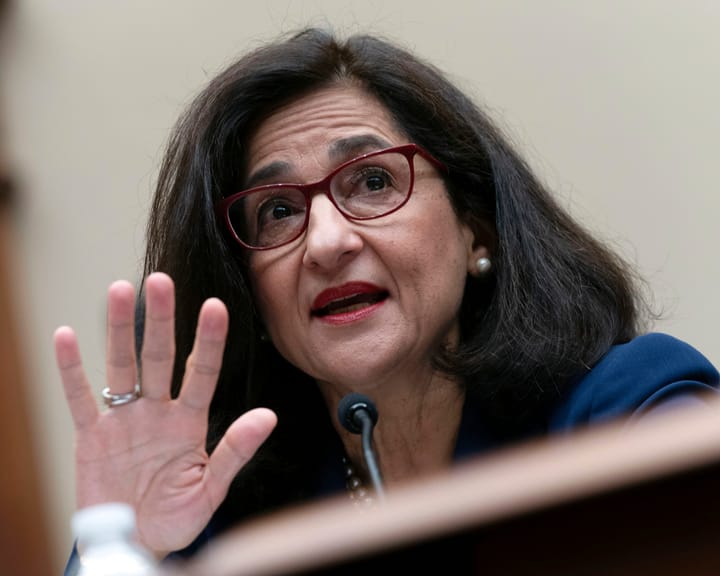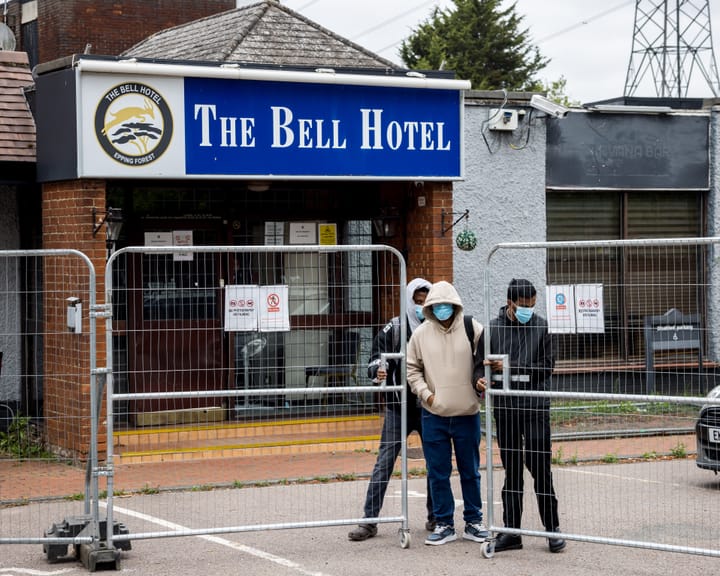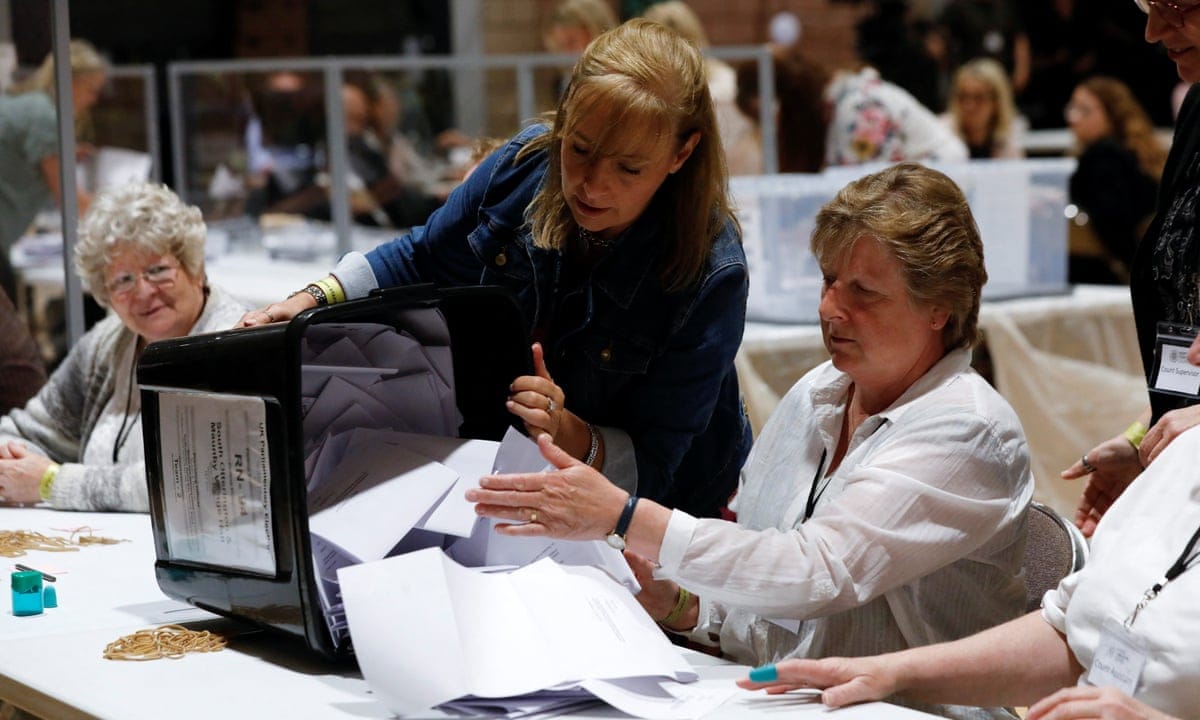The call for electoral reform in the UK gained momentum following what campaigners and academics describe as one of the most disproportionate elections in history.
Discontent among long-standing proponents of reform grew into a partnership with Reform UK's Nigel Farage when Labour secured a majority despite only obtaining 34% of the popular vote.
"This election has brought attention to our electoral system, which produced an unprecedented level of disproportionality," Darren Hughes, chief executive of the Electoral Reform Society, stated. "There's been a rising chorus for proportional representation (PR) since then."
Farage expressed his dissatisfaction with the current first-past-the-post system after the Reform party secured 14.3% of the vote but only won five seats. The Green Party, which received 6.8% of the vote, managed to secure four seats.
"These results will emphasize the need for change," Farage remarked. "However, it's important to note that some experts believe PR can lead to social democratic politics in Wales and Scotland. Others worry about the potential rise of extremist parties."
Hughes urged political parties and proponents of the existing system not to cite concerns over extreme party growth as an excuse for resisting reform, stating that "the electoral system should primarily serve voters' interests."
If proportional representation were adopted akin to how it operates in Scotland and Wales, Reform would have won 94 seats nationwide on Thursday and the Greens 42 seats. The Labour-Conservative alliance received their joint lowest share of votes ever, with four parties securing more than 10% of the vote for the first time.
The additional member system is a mixed electoral process where half of the representatives are elected through first-past-the-post and the other half via a proportional list method. This ensures representation based on overall vote share, as demonstrated by the Liberal Democrats in this election.
An analysis conducted by Make Votes Matter indicated that approximately 58% of voters did not elect their chosen MP, deeming previous FPTP results disproportionate and unrepresentative. For example, in the past three elections under FPTP (2015: Conservatives with 36.9%, 2017: minority government with 42.4%), a majority of seats were won despite lower vote shares.
Looking forward, Martin Smith, professor at the University of York, suggests that self-interest may ultimately influence the major political parties to adopt electoral reform as fragmentation within the party system continues and the current voting method becomes increasingly disproportionate.
Read next

"Starmer appoints ex-Bank deputy governor as top economic advisor"
Minouche Shafik to Become Keir Starmer’s Chief Economic Adviser
Former Bank of England deputy governor Minouche Shafik is expected to join Keir Starmer’s team as his chief economic adviser.
Her appointment comes as the prime minister’s office prepares for the autumn budget, following Shafik’s recent leadership

"Home Office wins appeal allowing asylum seekers to stay at Epping hotel"
The appeals court has determined that the injunction issued by the high court should not have been approved.
Those involved acknowledge they have become part of a broader discussion about how asylum seekers are managed and urge the public to recognize that the Bell hotel was only fulfilling a government-mandated

"Scottish Greens' new leaders push for universal income and free bus fares"
Scottish Greens' new leaders, Ross Greer and Gillian Mackay, have pledged to advocate for a universal income, free bus travel, and increased taxes on high earners following a subdued leadership race.
Greer and Mackay, previously backbench MSPs at Holyrood, were elected co-conveners of the Scottish Greens with a notably

